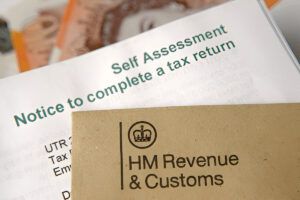
Starting a business in the UK can be exciting and rewarding. The UK offers a supportive environment for entrepreneurs, from access to funding to straightforward registration processes. However, success often depends on proper planning, particularly around tax obligations, accounting, and compliance.
This guide walks you through each stage of launching your venture, with practical tips to help you stay compliant and avoid common pitfalls.
Before diving in, it’s essential to understand the local market. The UK has thriving sectors such as technology, e-commerce, professional services, and creative industries.
You’ll also need to familiarise yourself with UK tax regulations, employment laws, and accounting requirements. Compliance from the outset not only helps avoid penalties but also builds credibility with banks, suppliers, and customers.
One of the first and most important decisions is your business structure:
• Sole Trader: Simple to set up, suitable for small operations and freelancers.
• Partnership: Ideal if you’re starting with one or more partners and want shared responsibility.
• Limited Company: Offers liability protection and potential tax advantages but requires more formal reporting.
Registering Your Business involves making your business official with the appropriate government bodies, depending on your business structure. This step is crucial for legality, taxation, and compliance with UK business regulations.
• For Sole Traders
You’ll need to complete Self Assessment registration with HMRC. This process generates your Unique Taxpayer Reference (UTR), enabling you to file annual tax returns.
• For Limited Companies.
You must register your company name, address, directors, and shareholders with Companies House. Once registered, HMRC will send you a notice to file
Staying on top of tax obligations is crucial:
• Income Tax & Self Assessment: Sole traders report their profits annually via Self Assessment.
• Corporation Tax: Limited companies must file returns and pay corporation tax on profits.
• VAT: If your annual turnover exceeds the current VAT threshold, registration is mandatory.
• Dividends & Dividends Tax Rate: Company directors often pay themselves through dividends. These payments are taxed differently from salaries, with varying dividends tax rates depending on your income band.
• PAYE: If you hire employees, you must register for Pay As You Earn (PAYE) to handle
employee tax and National Insurance.
Use accounting software that complies with Making Tax Digital (MTD) to stay organised and reduce errors.
Even if you’re a sole trader, it’s best practice to keep personal and business finances separate. Most UK banks require:
To find the best bank for your business, check out a few options and look at their fees, online features, and customer service. The right account can help keep your books in order and make your business look good.
Accurate record-keeping is not just a compliance requirement; it’s vital for making informed business decisions. Consider cloud-based accounting tools such as Xero, QuickBooks, or FreeAgent to track income, expenses, VAT, and payroll.
Some businesses require specific permits (for example, food service, childcare, or transport). Common forms of insurance include:
• Public Liability Insurance – Covers damage or injury to third parties.
• Employers’ Liability Insurance – Mandatory if you employ staff.
• Professional Indemnity Insurance – Protects against claims of professional negligence.
Don’t forget to comply with data protection laws (GDPR) if you store customer information.
Starting a business often requires some initial investment, and there are several funding options available in the UK, including:
• Personal savings
• Bank loans
• Angel investors and venture capital
• Government-backed startup loans and grants
• Understanding cash flow management from the start will help you avoid financial strain in the early months.
Building a professional brand can set you apart from competitors:
Consistent branding builds trust and makes your business more discoverable online.
Even proactive business owners can make errors. Here are some common ones to avoid:
• Mixing personal and business finances
• Missing tax deadlines due to poor record-keeping
• Overlooking the impact of the dividend tax rate on take-home pay
• Failing to secure the correct licences or insurance
• Ignoring cash flow projections when budgeting
Knowing about these problems early can save you time, money, and stress as your business grows. If you aren’t sure how to stay compliant or handle your money well, getting help from a good accountant can allow you to make confident choices for your business right away.
Contact us today to see how we can assist you with professional accounting and tax services made for your business.

Taking Advantage of Deductions: A Self-Assessment Guide for Entrepreneurs...

Top 10 VAT Return Mistakes Small Businesses Must Avoid...

Business Startup Advice In current competitive environment it is...

IR-35 Review IR35 is the legislation for freelancers and...
Ready to reach out to us! Request a call back now for a personalized quote!

You can talk to us on WhatsApp